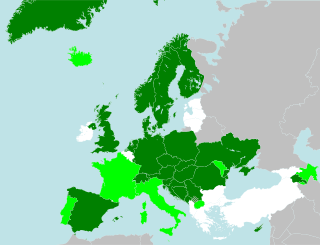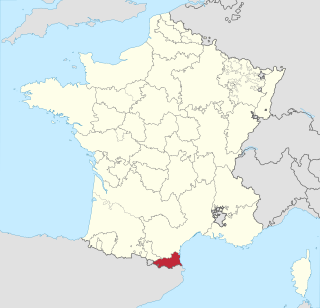 W
WProposition 227 was a California ballot proposition passed on the June 2, 1998, ballot. Proposition 227 was repealed by Proposition 58 on November 8, 2016.
 W
WArizona Proposition 203, also known as English for the Children, is a ballot initiative that was passed by 63% of Arizona voters on November 7, 2000. It limited the type of instruction available to English language learner (ELL) students. Before Proposition 203, schools were free in terms of ELL instruction to use bilingual or immersion methods. According to a cover letter from the Arizona Department of Education Superintendent of Public Instruction Lisa Graham Keegan to the Arizona Legislature, it was impossible to make a correct analysis regarding how many students were learning through English as a second language programs, as opposed to bilingual education. The school districts had submitted "conflicting information," and 40% had not submitted any data, in spite of three deadline extensions.
 W
WA constitutional referendum on the "Amendments to the Constitution of the Republic of Latvia" was held on 18 February 2012. Proposed amendments included Articles 4, 18, 21, 101 and 104 of the Constitution of Latvia by adding the condition about Russian as the second official language, as well as prescribing two working languages — Latvian and Russian — for self-government institutions. The referendum's question was "Do you support the adoption of the Draft Law "Amendments to the Constitution of the Republic of Latvia" that provides for the Russian language the status of the second official language?".
 W
WProposition 58 is a California ballot proposition that passed on the November 8, 2016 ballot. Proposition 58 repealed bilingual education restrictions enacted by Proposition 227 in 1998.
 W
WArsenault-Cameron v Prince Edward Island, [2000] 1 S.C.R. 3, 2000 SCC 1, is a landmark Supreme Court of Canada decision on minority language rights. The Court found that the numbers of Francophone children in Summerside, Prince Edward Island warranted French-language education in Summerside, under section 23 of the Canadian Charter of Rights and Freedoms, and the province was constitutionally obligated to create a French language school.
 W
WThe Bilingual Education Act (BEA), also known as the Title VII of the Elementary and Secondary Education Amendments of 1967, was the first United States federal legislation that recognized the needs of limited English speaking ability (LESA) students. The BEA was introduced in 1967 by Texas senator Ralph Yarborough and was both approved by the 90th United States Congress and signed by President Lyndon B. Johnson on January 5, 1968. While some states, such as California and Texas, and numerous local school districts around the country already had policies and programs designed to meet the special educational needs of elementary and secondary school students not fluent in the English language, this act signaled that the federal government now also recognized the need for and value of bilingual education programs in U.S. public education. Passed on the heels of the Civil Rights Movement, its purpose was to provide school districts with federal funds, in the form of competitive grants, to establish innovative educational programs for students with limited English speaking ability.
 W
WCollioure is a commune in the southern French department of Pyrénées-Orientales.
 W
WDegree of endangerment is an evaluation assigned by UNESCO to the languages in the Atlas of the World's Languages in Danger. Evaluation is given according to nine criteria, the most important of which is the criterion of language transmission between generations.
 W
WA dialect card was a system of punishment used in Japanese regional schools in the post-Meiji period to promote standard speech. It was modelled after similar policies in Europe, particularly the French Vergonha or the Welsh Not.
 W
WThe European Charter for Regional or Minority Languages (ECRML) is a European treaty adopted in 1992 under the auspices of the Council of Europe to protect and promote historical regional and minority languages in Europe. However, the charter does not provide any criterion or definition for an idiom to be a minority or a regional language, and the classification stays in the hands of the national state.
 W
WFrench Cerdagne is the northern half of Cerdanya, which came under French control as a result of the Treaty of the Pyrenees in 1659, while the southern half remained in Spain. Catalans often refer to French Cerdagne as Upper Cerdanya. It is the only French territory in the Iberian Peninsula, as it is on the south side of the Pyrenees range between Spain and France. For example, the Segre river, which goes west and then south to meet the Ebro, has its source in the French Cerdagne. An inadvertent result of the Treaty of the Pyrenees is the Spanish exclave of Llívia which is sovereign Spanish territory completely surrounded by French Cerdagne.
 W
WTomasz Kamusella FRHistS is a Polish scholar pursuing interdisciplinary research in language politics, nationalism and ethnicity.
 W
WIn linguistics, language death occurs when a language loses its last native speaker. By extension, language extinction is when the language is no longer known, including by second-language speakers. Other similar terms include linguicide, the death of a language from natural or political causes, and rarely glottophagy, the absorption or replacement of a minor language by a major language.
 W
WFrance has one official language, the French language. The French government does not regulate the choice of language in publications by individuals, but the use of French is required by law in commercial and workplace communications. In addition to mandating the use of French in the territory of the Republic, the French government tries to promote French in the European Union and globally through institutions such as La Francophonie. The perceived threat from Anglicisation has prompted efforts to safeguard the position of the French language in France.
 W
WArticles 4 and 114 of the Constitution of Latvia form the foundation for language policy in Latvia, declaring Latvian to be the official state language and affirming the rights of ethnic minorities to preserve and develop their languages. Livonian language is recognized as "the language of the indigenous (autochthon) population" in the Official Language Law, but Latgalian written language is protected as "a historic variant of the Latvian language." All other languages are considered foreign by the Law on State Language. Latvia provides national minority education programmes in Russian, Polish, Hebrew, Ukrainian, Estonian, Lithuanian, and Belarussian.
 W
WLanguage politics is the way language and linguistic differences between peoples are dealt with in the political arena. This could manifest as government recognition, as well as how language is treated in official capacities.
 W
WThere are four languages with official status in Catalonia : Catalan; Spanish- which is official throughout Spain; Aranese, a dialect of Occitan spoken in the Aran Valley; and Catalan Sign Language. Many other languages are spoken in Catalonia as a result of recent immigration from all over the world.
 W
WLaw on Use of Languages and Scripts of National Minorities is law which defines use of minority languages in Croatia. Additionally Croatian Constitutional law on national minorities rights and The Law on Education in language and script of national minorities explicitly define rights on usage of minority languages in Croatia.
 W
WLinguistic Imperialism is a book written by Robert Phillipson, research professor at Copenhagen Business School's Department of English, published in 1992 by Oxford University Press.
 W
WThere are 53 municipalities of Finland in which Finnish is not the sole official language. In Finland, as of December 31, 2013, 89.3% of the population speak Finnish, 5.3% Swedish and 0.04% Sami languages. Both Finnish and Swedish are official languages of Finland. Officially, a municipality is bilingual if the minority language group consists of at least 8% of the population, or at least 3,000 speakers. A previously bilingual municipality remains so if the linguistic minority proportion drops below 8%, up to 6%. If it drops below 6%, it is possible for the municipality to remain bilingual by government decree, on the recommendation of the municipal council, for a further ten years. Municipalities that make use of the 3,000-speaker rule include the national capital Helsinki and the cultural center of Swedish Finns, Turku. On the Åland archipelago, where Finnish is almost absent from daily life, the language law does not apply. On the mainland, the highest proportion of Swedish-speakers is found on the western coast, in Ostrobothnia.
 W
WThe Muhlenberg legend is an urban legend in the United States and Germany. According to the legend, the single vote of Frederick Muhlenberg, the first ever Speaker of the US House of Representatives, prevented German from becoming an official language of the United States. The story has a long history and has been told in several variations, which may be based in part on actual events.
 W
WNepal Bhasa movement refers to the struggle for linguistic rights by Newar speakers in Nepal in the face of opposition from the government and hostile neighbors. The campaign aims to increase the use of Nepal Bhasa in the home, education, government and business. Despite a high level of development, Newar culture and language are both under threat.
 W
WThe No Child Left Behind Act of 2001 (NCLB) was a U.S. Act of Congress that reauthorized the Elementary and Secondary Education Act; it included Title I provisions applying to disadvantaged students. It supported standards-based education reform based on the premise that setting high standards and establishing measurable goals could improve individual outcomes in education. The Act required states to develop assessments in basic skills. To receive federal school funding, states had to give these assessments to all students at select grade levels.
 W
WNorthern Catalan is a Catalan dialect mostly spoken in Northern Catalonia, but also extending in the northeast part of Southern Catalonia in a transition zone with Central Catalan.
 W
WThe Nueva Planta decrees were a number of decrees signed between 1707 and 1716 by Philip V, the first Bourbon king of Spain, during and shortly after the end of the War of the Spanish Succession by the Treaty of Utrecht.
 W
WThe Ohrid Framework Agreement was the peace deal signed by the government of the Republic of Macedonia and representatives of the Albanian minority on 13 August 2001. The agreement was signed by the country's four political parties after international mediators demanded their commitment to its ratification and implementation within a four-year period.
 W
WRobert Henry Lawrence Phillipson is Research Professor at Copenhagen Business School's Department of English. He is perhaps best known for writing Linguistic Imperialism and English-Only Europe?: Challenging Language Policy. He graduated as an undergraduate from Cambridge University
 W
WRoussillon is a historical province of France that largely corresponded to the County of Roussillon and part of the County of Cerdagne of the former Principality of Catalonia. It is part of the region of Northern Catalonia or French Catalonia, corresponding roughly to the present-day southern French département of Pyrénées-Orientales in Languedoc-Roussillon.
 W
WJosé María Sánchez Carrión is a Spanish linguist, specialised in Basque language, sociolinguistics and historical linguistics. He is an associate member of Euskaltzaindia since 1983. Despite being the best known local academic proponent of reversing language shift measures, he has never held a stable university post in the Basque Country.
 W
WThe symbole, also called ar vuoc'h, was an object used by Francophone headmasters in public and private schools in Brittany, French Flanders, Occitania, Basque Country and North Catalonia as a means of punishment for students caught speaking Breton, Flemish, Occitan or Catalan during the 19th and 20th centuries.
 W
WTelugu language policy is an issue in the Indian states of Andhra Pradesh and Telangana, with 84 percent of the population reporting Telugu as their first language in Andhra Pradesh prior to the creation of the State of Telangana. Telugu-language advocates note a lack of incentivisation and government support for the language, and press for their linguistic rights for Telugu's greater recognition and promotion.
 W
WThe Toubon Law is a law of the French government mandating the use of the French language in official government publications, in all advertisements, in all workplaces, in commercial contracts, in some other commercial communication contexts, in all government-financed schools, and some other contexts.
 W
WThe Treaty of the Pyrenees was signed on 7 November 1659, and ended the 1635 to 1659 Franco-Spanish war.